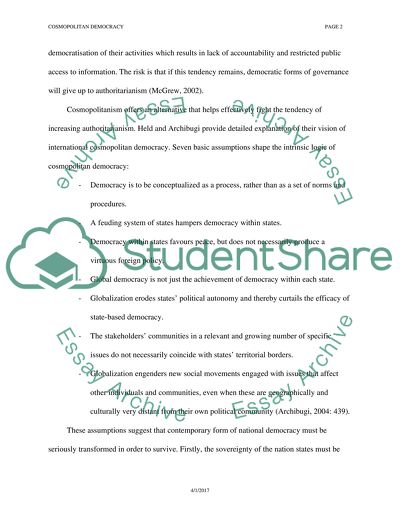Cite this document
(The Concept of Cosmopolitan Democracy Coursework, n.d.)
The Concept of Cosmopolitan Democracy Coursework. https://studentshare.org/politics/1532498-assess-the-concept-of-cosmopolitan-democracy
The Concept of Cosmopolitan Democracy Coursework. https://studentshare.org/politics/1532498-assess-the-concept-of-cosmopolitan-democracy
(The Concept of Cosmopolitan Democracy Coursework)
The Concept of Cosmopolitan Democracy Coursework. https://studentshare.org/politics/1532498-assess-the-concept-of-cosmopolitan-democracy.
The Concept of Cosmopolitan Democracy Coursework. https://studentshare.org/politics/1532498-assess-the-concept-of-cosmopolitan-democracy.
“The Concept of Cosmopolitan Democracy Coursework”. https://studentshare.org/politics/1532498-assess-the-concept-of-cosmopolitan-democracy.


